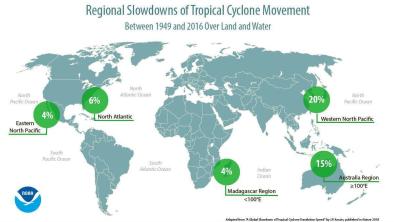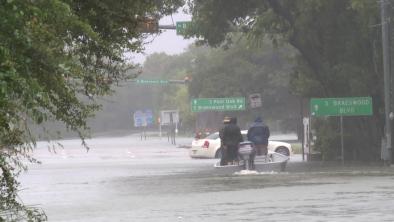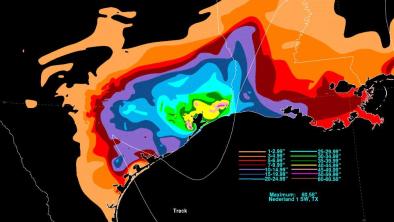Science Source
Hurricane Harvey links to Ocean Heat Content and Climate Change Adaptation
We show, for the first time, that the volume of rain over land corresponds to the amount of water evaporated from the unusually warm ocean. As climate change continues to heat the oceans, we can expect more supercharged storms like Harvey.
Kevin Trenberth, lead author and NCAR senior scientist
- States that human‐caused climate change is supercharging hurricanes and exacerbating the risk of major damage
- Uses ocean and atmosphere observation and demonstrates links between increased upper ocean heat content due to global warming with the extreme rainfalls from recent hurricanes
- States that Hurricane Harvey provides an excellent case study as it was isolated in space and time
- Shows that prior to the beginning of northern summer of 2017, ocean heat content was the highest on record both globally and in the Gulf of Mexico, but the latter sharply decreased with hurricane Harvey via ocean evaporative cooling
- States that the lost ocean heat was realized in the atmosphere as moisture, and then as latent heat in record‐breaking heavy rainfalls
- Finds, accordingly, that record high ocean heat values not only increased the fuel available to sustain and intensify Harvey, but also increased its flooding rains on land
- States that Harvey could not have produced so much rain without human‐induced climate change
- Results have implications for the role of hurricanes in climate
- Concludes that proactive planning for the consequences of human‐caused climate change is not happening in many vulnerable areas, making the disasters much worse
Related Content
Headline

Jun 6, 2018 | LA Times
Hurricanes and typhoons are slowing down, which means more time to do damage
Headline

Jun 6, 2018 | KPRC
Report gives new insight into just how bad Hurricane Harvey was
Science Source
| Nature
A global slowdown of tropical-cyclone translation speed
James P. Kossin
Headline

May 24, 2018 | The Weather Channel
New NOAA Maps Show the Torrents Harvey Unleashed on Texas


